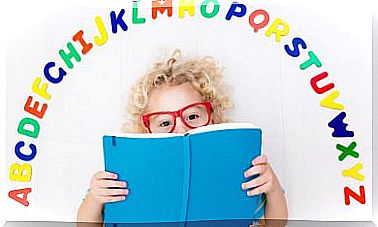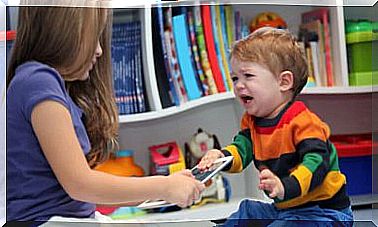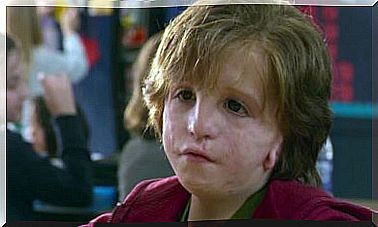9 Positive Phrases For Children

Many adults grew up listening to thousands of no’s every day: Don’t run because you’ll fall, don’t get wet in the rain because you’ll get sick, don’t touch that, you won’t understand it, and so the list goes on and on …
Many of these adults are still afraid of doing certain activities because they were told so many times that they could not, that they should not or that it would hurt them if they did not even try, others dare to experiment and realize that many of those “no” that they tirelessly told you are false. What would their lives be like if they had heard positive phrases?
A child who hears phrases like you are free, you are intelligent, you are capable, will surely be an adult who will behave safely, who will have tools to take on challenges and will not be afraid of making mistakes. This is a theory that you can put into practice and that has its foundations in positive psychology.
Remember that the ear is a fundamental organ in the learning process. It is through it that they learn to speak, remember that children articulate their first words through the imitation of sounds, but beyond technical issues through the ear you can strengthen your child’s self-esteem.
Make him wake up listening to positive phrases and share them with him. Many of them will help you to create more empathy, to get closer to your emotions, to understand your environment and to create a bridge of assertive communication. Here are 9 phrases that can help you:

- Be happy: If the child is learning to make music, to play soccer, to write or any activity that he has wanted to learn, the most important thing is that he has fun and is happy. When you see him insecure, dissatisfied or frustrated because perhaps he has not acquired the skill that he wants or requires to carry out his activity, remind him that he must be happy, that he must feel happy.
- Accept yourself as you are: Being tall or short, thin or fat, dark or white, is not the important thing. Before a child learns these concepts, it is essential to make him understand that he must accept himself as he is. This will help him develop in peace and confidence.
- You are in good health: Positive affirmations can strengthen the conviction of being healthy. It is natural for a child to seek to know and explore his environment, denying him that for fear that he will touch “things and get sick” could make him believe that he does not enjoy the same health as other children. That belief limits them to enjoy many things in life.
- You are a good student: Regardless of the outstanding grades (2020, A +) that every parent wants their child to achieve in class, it is positive to tell the child that he is a good student. He may not be very bright in math, but he could be in writing, everyone has a strength, a gift. Help him discover it, try to observe what he likes the most and convince him to develop it.
- You are valuable : When saying this phrase the coherence between the verb and the action is very important. It is good that you remind your child how valuable he is to you, but apart from communicating it, it is ideal to make him feel it through actions. Show him how much love you feel for him, if the gesture is genuine, no matter how small, he will notice and recognize it.
- You are free: The child knows no limits, for him everything is possible: He sees and conceives the world without limitations. However, with the passage of time he learns to have fears, worries and to see limitations around him, but who makes him understand or believe in limitations? Many times it is the adults who, with their minds full of and barriers, teach you this behavior.

Children are born free, don’t forget. And although your duty as a mother is to teach him, try to educate him so that they grow freely, so that they experience it and know that they are and will be free until the end of their days, because the fact of acquiring responsibilities and tasks that require more attention , seriousness or bravery, does not determine your amount of freedom. A child who grows freely will be a healthy person.
- You are capable : Each child’s ability to perform tasks or function in their environment always varies. Some are faster, others stronger, and others see solutions to problems more clearly. Ideally, you as a parent have this clear, so that you can make your child see that he will always be able to carry out the task that is put in front of him, you will see that he will do it with a good disposition. We all come with capabilities, focus on enhancing your child’s.
- You are responsible: Much is debated about whether responsibility is a habit that is worked on daily or an intrinsic virtue in human beings. Whatever their reason, parents can also help the child to develop these virtues, affirming early on how responsible he is. To achieve this, you can assign him a small task and when he fulfills it he exalts how responsible he was, that will motivate him to be committed and not run away from responsibilities.
- Helping without seeking reward : Every day we come across situations that merit the help of a second or third party. You or your child may well be that second or third that is needed. Teach him how valuable it is to give help, so he will know that doing so brings more satisfaction to the person who gives it than to the person who receives it.
And here is a bonus: 10) This is not a phrase, it is rather advice: All the above are just examples. Take one of those phrases: Be free, you can invent as many as you want and need. Do it! They will do you and your child good.









